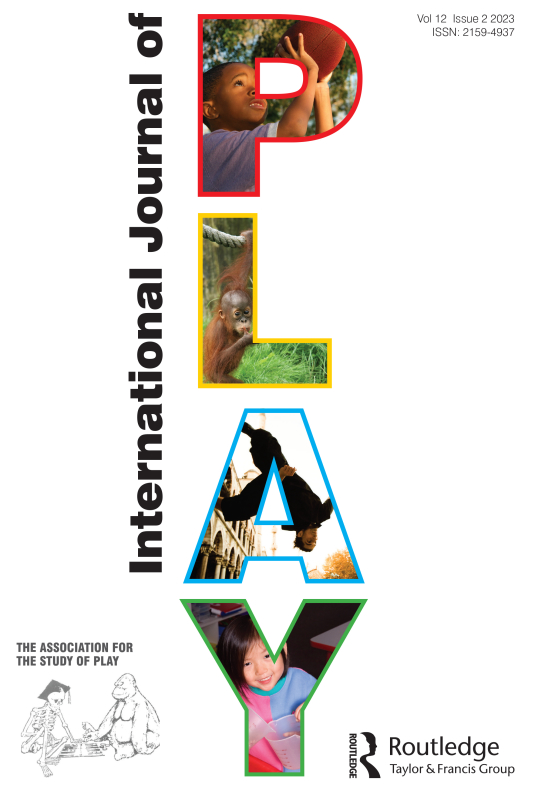Submit a Manuscript to the Journal
International Journal of Play
For a Special Issue on
Many Roles, Many Languages - Emergent Multilingualism in Children’s Role Play
Abstract deadline
20 October 2024
Manuscript deadline
14 February 2025

Special Issue Editor(s)
Melissa Schuring,
KU Leuven, Belgium
[email protected]
Kelly Shoecraft,
Griffith University, Australia
[email protected]
Many Roles, Many Languages - Emergent Multilingualism in Children’s Role Play
Role play is a natural joint interaction in which children perform a variety of social roles (Katerbow, 2013). Although definitions and labels (e.g. imaginative/pretend/dramatic/game play) differ, scholars agree upon the potential of studying role play in bi- and multilingual contexts (Dunn, 2003; Schwarz, 2021). Indeed, present day’s globalized society has boosted diverse forms of bi- and multilingualism, leaving children with linguistic resources from two, three or more languages to draw upon in their role play interactions (Shoecraft, 2018). Being child-led, these interactions thus provide a window on young learners’ emerging links between language(s) (varieties) and particular roles (e.g. English for teachers vs. Patwa for farmers; Paugh, 2019; see also Schuring et al., 2024).
Building on the foundational theories of Piaget (1962) and Vygotsky (1966), the special issue aims to advance our understanding of multilingualism in role play in three ways (cf. Rationale), focusing on:
- The comparison of roles. How do children use their multilingual repertoires in their enactment of roles, contrasting the self with the impersonated role (cf. self vs. doctor, self vs. a dragon), roles within the play frame (e.g. doctors vs. nurses, sellers vs. buyers) and roles surrounding the play frame (director vs. actor, expert vs. apprentice)?
- The construction of roles. How do children use their multilingual repertoires to (socially) construct their roles, varying from negotiations of props, decors and storylines or scripts (Nourot, 2015), to the creation of new first names (e.g. Now, I am Betty!, see Calvert, 2004) and the development of (new) socio-demographic role characteristics (e.g. age, profession, gender)?
- The cognitive reality of roles. To what extent do children’s multilingual performances of the roles align with their perception and awareness of the language(s) (varieties) used by these particular roles in the real world? Can multilingual role play interactions be understood as ‘imitations’ of role-specific language use? To what extent are they caricatures (Preston, 1992)?
We welcome submissions from a variety of disciplines (developmental/cognitive sociolinguistics, second language learning, linguistic anthropology, …) that touch on one of these themes and study role play in one of several possible contexts (the classroom, the home, more controlled settings), from quantitative and/or qualitative perspectives. Studies that contrast role play interactions with another type of data (e.g. rating tasks, interviews) or research taking a comparative perspective to children’s role play dialogues (e.g. comparing it to role play in teenagers or adults) are also welcome.
Looking to Publish your Research?
Find out how to publish your research open access with Taylor & Francis Group.
Choose open accessSubmission Instructions
Submission information
Abstracts
We call for submissions of 400-word abstracts (excluding references, language: English) and a short
bio (max. 100 words) per author. Submissions can be sent to the guest editors Melissa Schuring
([email protected]) and Kelly Shoecraft ([email protected]) no later than
October 20th 2024.
Manuscripts
We invite papers of no more than 7000 words (including references, appendices, etc.) that follow the guidelines of the International Journal of Play.
Confirmed timeline:
- Abstract submission: October 20th , 2024
- Decision on abstracts: November 8th, 2024
- Submission of manuscripts for review: February 14th, 2025
- Reviewer feedback to contributors: March 31st , 2025
- Submission of revised manuscripts: June 1st, 2025
- Final approvals June 30th, 2025
- Expected publication date: August/September 2025